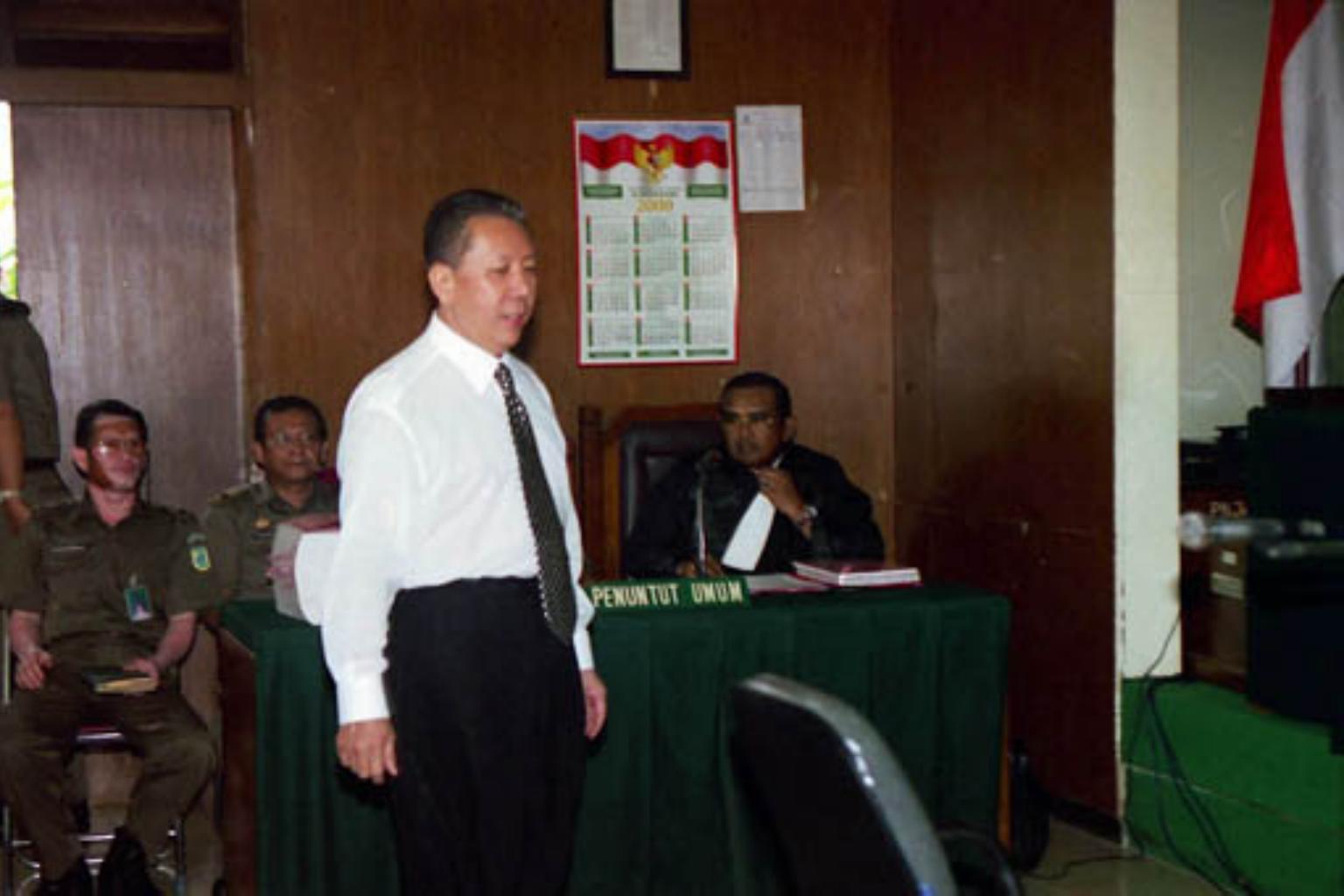Editorial Notes
The 'Joker' who turned the Indonesian justice system into a laughing stock: Jakarta Post
In its editorial, the paper says that Djoko Sugiharto Tjandra escaped only one day before the Supreme Court found him guilty of embezzling state bailout funds.
Sign up now: Get insights on Asia's fast-moving developments

In a file photo, graft convict Djoko Tjandra stands trial for his involvement in the Bank Bali graft case.
PHOTO: THE JAKARTA POST/ASIA NEWS NETWORK
Follow topic:
JAKARTA (THE JAKARTA POST/ASIA NEWS NETWORK) - No wonder many people have dubbed fugitive tycoon Djoko Sugiharto Tjandra "Joker" as he has turned the Indonesian justice system into a laughing stock.
However, he could have not committed this mockery of justice had the system been imbued with uncompromising integrity and adherence to the maxim of equality before the law.
For the last 11 years Mr Djoko has managed to evade justice, which would have been impossible without the help of others and a flawed bureaucracy.
It must be underlined that Mr Djoko is only one of several such fugitives who remain off the hook.
The list includes corruption convict Eddy Tanzil who fled Cipinang Penitentiary in East Jakarta in 1996 and most recently Indonesian Democratic Party of Struggle (PDI-P) member Harun Masiku.
These people have much in common. Not only have they been involved in corruption cases, they are connected in one way or another with the powerful.
Mr Djoko fled to Papua New Guinea in 2009 on a chartered flight, despite a travel ban having been slapped on him by the Corruption Eradication Commission (KPK).
As in previous cases of obstruction of justice, Mr Djoko escaped only one day before the Supreme Court found him guilty of embezzling state bailout funds during the 1998 Asian financial crisis and sentenced him to two years' imprisonment.
And now he has sneaked back into the country unnoticed, with some reports saying he has been in Indonesia for three months.
While the Directorate General of Immigration admitted to not having detected Mr Djoko's return, Attorney General ST Burhanuddin expressed his surprise at Mr Djoko's entry and admitted the intelligence failure during a hearing with the House of Representatives on June 29.
Mr Burhanuddin's predecessor Muhammad Prasetyo once said that Mr Djoko had obtained Papua New Guinean citizenship, although reports said he did not live in the neighbouring country.
Mr Djoko came home to file a case review with the Supreme Court. For this purpose, he applied for an electronic ID card at South Grogol subdistrict office in South Jakarta. It took him less than an hour to secure the document, while local residents have said that usually the process takes about one month.
That the country's population and registry system did not alert officials about Mr Djoko being a fugitive should raise many eyebrows.
Worse, a public official like the South Grogol subdistrict head claims to be unaware of the legal status of Mr Djoko, who has often made the headlines while on the run.
State prosecutors were supposed to arrest Mr Djoko when he attended his case review hearing, originally scheduled to commence on June 29, but twice the plan failed because the graft convict asked for delays for health reasons, the latest being on Monday (July 6).
Of course, he will try to resist detention like he has done for 11 years, unless state prosecutors take bold measures such as forcible arrest given that he is a fugitive.
The irregularities surrounding Mr Djoko's return speak volumes about not only the poor coordination among state institutions, but also the entrenched legal loopholes that enable an individual to stand above justice. It's our job to make sure Joker does not have the last laugh.
The Jakarta Post is a member of The Straits Times media partner Asia News Network, an alliance of 24 news media organisations.

